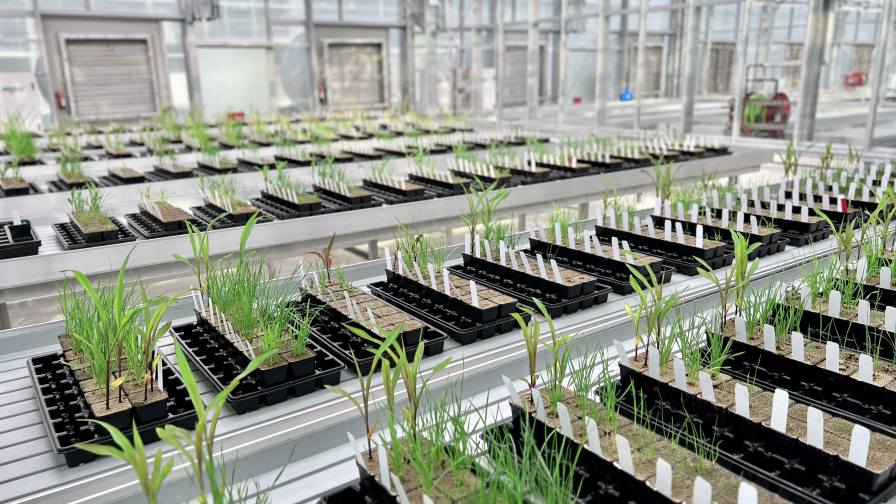Bayer Signs Agreement With Chinese OCRI
(Monheim, Germany) — Bayer CropScience and the Chinese Oil Crops Research Institute (OCRI) have finalized two agreements in the area of oilseed rape research. The parties have agreed to conduct a joint research collaboration related to increasing seed oil content and resistance against the fungal disease Sclerotinia in oilseed rape.
Increasing seed oil content is an important target for Bayer CropScience’s oilseed rape research in the context of maximizing oil yield which ultimately delivers premiums to farmers and further strengthens the competetiveness of Bayer CropScience’s leading oilseed rape hybrids. Sclerotinia is a widely spread and challenging fungal disease in oilseed rape which can cause yield losses up to 20 percent. Hence Bayer CropScience and OCRI will join research efforts to utilize genes relating to oil content and Sclerotinia resistance using molecular breeding or genetic engineering to better protect and further enhance the oilseed crop.
“We continue to intensify our research activities in Asia and we look forward to working with OCRI, a leading scientific institution with strong resources”, says Dr. Joachim Schneider, head of the business unit BioScience at Bayer CropScience. “By improving our high-yielding oilseed rape hybrids further and by strengthening disease resistance, we intend to help farmers more effectively tackle agronomic challenges and become more productive and profitable. Bayer CropScience is a market leader in North-America with InVigor hybrids and our crop protection solutions. Plans to further expand our business into other oilseed rape-growing regions such as Europe and Asia-Pacific, with countries like India and Australia, will give even more farmers greater choices in quality hybrid oilseeds.”
Dr. Hanzhong Wang, director general of OCRI-CAAS added: “Increasing oil content and resistance to Sclerotinia has been among the most important breeding objectives in oilseed rape. At OCRI, we have made desirable progress in developing high-oil content and Sclerotinia-resistant oilseed rape lines and duplicating related genes using modern biotechnology techniques. Since around 60 percent of the edible oil consumed in China relies on importation, further cooperation with Bayer CropScience based on our progress is helpful to increase the global edible oil supplies. This cooperation will therefore contribute to improving the vegetable oil security of China in return.”
The agreements build on a cooperation framework between Bayer CropScience and the Chinese Academy of Agricultural Sciences (CAAS) which was established in 2008. Under this framework, Bayer CropScience is engaged in establishing collaborations with CAAS-affiliated institutes such as the OCRI.
(Source: SeedQuest)






